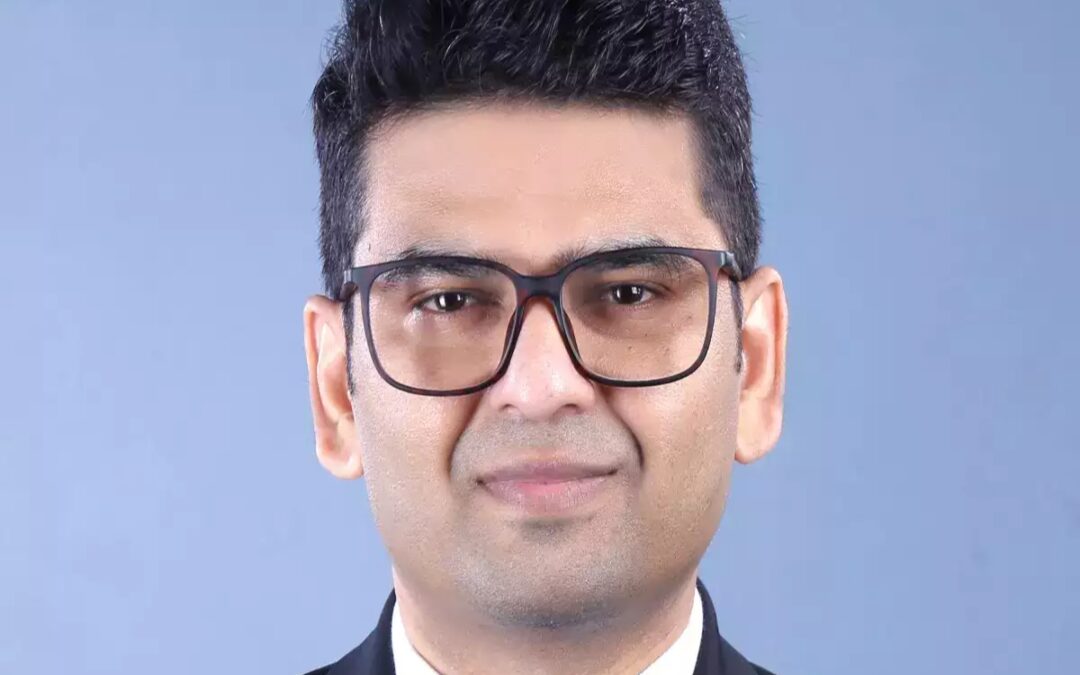Mahindra Finance is undergoing a paradigm shift in senior management with vice chairman Ramesh Iyer handing over the baton to Raul Rebello this April-end. Analysts feel that while it may take time to create new business models, the company’s robust rural reach and financials would help. In an exclusive interview with ET, Rebello, the incoming managing director, spells out his priorities of digitisation, used vehicle financing and growing ‘in prime ‘ customer segments as key drivers. Edited excerpts:
Used car financing is one of the biggest areas for Mahindra Finance but it is seeing rising competition from NBFCs like L&T Finance. How do you see yourself playing out in this segment?
We finance the used vehicle category from 3-wheelers upwards where we have a specific segment-by-segment focus. Our used vehicle is carved out as a separate business unit. Used vehicles were 13-14% of our incremental business, it is 17-18% now and we would like it to be 20% going forward. There are few reasons why used vehicle business is a natural fit for us. One, we are the third largest new car financier in the country, among banks and NBFCs, so, by understanding, it is something which falls within our ecosystem. A lot of our new car customers would like to either exchange the car or take a top-up loan.
Secondly, a lot of dealers have exchange programmes due to which natural inventory comes back. Third is we also have a great working relationship whether with Maruti True Value or Mahindra First Choice.
Banks and NBFCs today are fighting it out, with banks enjoying a cost advantage while NBFCs look at the frontiers of products which give higher yields. Used vehicles today are one of those products for us where pricing capability is higher, at the same time we don’t see the similar delta on risk because we have been underwriting this portfolio over a while.
Where do you think the numbers are coming from–rural or urban markets for used cars. Would dropping rates worry you?
Both. Earlier there was a problem with the chip infrastructure and new vehicles due to which supply was compromised because people were holding on to their earlier vehicles, but now that some of that has eased, we are seeing much more inventory flow through the pipe. Banks always have the muscle power of reducing interest rates but last mile distribution plays a critical part as dealers want to rotate the inventory much quicker.
There is a lot of excitement in the EV sector with announcements and sales volume though on a small base. For Mahindra Finance beyond e-3 wheelers, how do you see the other segments growing?
We finance the inherent demand that is there in three-wheelers where we see a great adoption. We have consciously stayed out of two-wheeler financing for now. In the 3W space, we are present over the last 3-4 years as the ecosystem has been supportive. Unlike in passenger vehicles, the range anxiety issues don’t come in for electric 3-wheelers. Their adoption has been healthy and in three-wheelers, we finance not just M&M, but other OEMs also. We are the second largest three-wheeler financier in the country among banks and NBFCs and as stated, the goal will be to continue to finance fast moving products.How do you see the passenger vehicle financing market?
The estimates of PV adoption were much more aggressive than what’s really happening right now on ground. Hybrids is one narrative which is playing out and which pretty much beats expectation. As a financer, our job is to finance increased adoption. We work with all OEMs and finance vehicles irrespective of the manufacturer without sole dependency on any one OEM. When we finance an EV, we are not underwriting the vehicle only, we are underwriting the customer completely.
Ramesh Iyer had spoken about Mahindra Finance looking at prime customers. What is the status of that and how do you plan to grow in that segment?
Post-pandemic, the trend that we saw happening from the consumer side was that SUVs were rapidly gaining market share. Prime can be defined in various ways, on a bureau score or on affluence levels., etc. We have a combination of attributes that we define as prime. What we’ve seen is in the prime segment, there is a capability and preference towards higher-end vehicles with better features. A customer would like to go in for that vehicle with a higher EMI rather than save some money. It was important for us to take cognisance of the preference lens of consumers moving towards the whole premiumisation of vehicles. As a country, our affluence levels are going up. We are seeing now even our consumers in rural, semi-urban areas are morphing into households with diversified income sources including agri, non-agri, trade, remittances from urban to rural. With consumer insight, we clearly felt that since the shift was happening, we cannot sit out of this opportunity.
We have been running this successfully over the last two years; our appetite to do this premium segment, we have capped it internally at 15% of our total mix. If it goes beyond that, then it will have a detrimental effect on our overall earnings.
Do you have any specialised leasing schemes for these customers?
Yes. So, 2.5 years back, we started a leasing outfit called ‘Quiklyz’ which in the last two years has crossed around Rs 1,300 crores of business. We do both operational lease as well as finance lease. Retail is slow to pick up, but most of what we do is to corporates.
Are many corporates considering the EV subscription model?
We deal with 200 corporates for their employees. Now, each of these corporates, the CEOs might take a fancy EV vehicle. Let’s say three levels below in the organisation someone takes a Tata Nexon or XUV400. So, we are seeing all kinds of trends. Whatever you see as adoption is also seen as an adoption in this segment also.
What are the new business verticals you’ll be looking at in FY25?
The SME business is something I’ve personally been wanting to diversify as I’ve done in my previous organisation. Within SME, what we have called out is the micro and small enterprises, not the medium enterprises, which are largely the battlefield of banks. The micro and small segment largely is a catering segment for NBFCs and still the penetration of finance is quite low there. In the last two years, we have increased the book size from close to Rs 2000 crore to about Rs 5,000 crores now. Being a smaller segment, we don’t look at it in YoY terms but it’s more on whether it is 1x, 2x kind of growth. We have, in fact, really beefed up the team. We’ve had very senior resources join us from mainstream private sector banks, etc.
On the product side, we are playing across a couple of products including loan against property, machinery loans, etc. We also have a small component of business loans, which is unsecured in nature having very strict underwriting guidelines. We have tied up with some of the fintechs like Lendingkart, which is more a marketplace to discover good credit and tie up with partners who share the same vision as us. We do plan to play the mortgage book on a larger canvas which is an attractive business for us. In our insurance businesses, we have taken certain clearances. We do have a broking license; we have sought an agency license to play insurance in a more holistic manner. When it comes to the increasing wealth Index in the country, the mutual fund business is a very attractive business. Our mutual fund company, which was languishing at 35th in the rank order of 45 AMCs in the country, has climbed to 25th position where we can look to grow.
Is there any plan for fund generation for the housing finance business like an IPO?
You have to create value to discover value. We believe that we have not yet created enough value in the housing finance company. I think it’s fair to say that there’s enough work to be done to create value before unlocking value.
In any way will you try to derisk your electric passenger vehicle portfolio?
We are not a very prolific funder of EV 4-wheelers. It’s not that we are the torch bearers of financing EVs. So, whenever we see the conviction that we are pivoting as a country, we are in a good place. The reason why we did the leasing business is to gain some amount of acumen in subscription, understanding leasing with EVs, etc., so that we’re prepared that when the inflection point hits, we have a subscription playbook ready.
But to your point whether we should carve out this with some ESG fund and have a different outfit, see we’re always open to that. We need to hedge our risks and play with like-minded partners. When ESG funds are the best funds to tap into for this kind of lending, etc., we are open to it. As a prominent financer to the wheels business, we will always make sure to be future ready.








